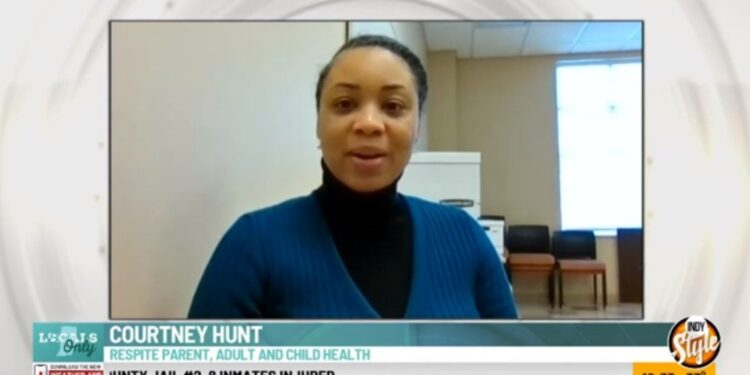Courtney Hunt didn’t begin fostering kids the way most foster parents do. She saw how things worked from the administrative side, and the good she witnessed prompted her to offer her own help.
Hunt used to be a case manager for the Indiana Department of Child Services (DCS). “It was during that experience that I saw the need for foster homes,” she said. “Being a family case manager, I was fairly familiar with all of the contractors that were out here. A close friend was in charge of all the LCPAs (Licensed Child Placing Agencies) and she listed three agencies weren’t in hot water with her, and Adult & Child Health was one.”
Courtney is a respite parent, which means she isn’t fostering kids in her home for extended periods, as most foster parents do. She watches foster children when their full-time foster parents need a date night or have another reason to take a break. Through A&C’s Therapeutic Foster Care program, foster parents are allowed one paid “respite day” each month.
“Anytime they need a break or they need a date night, or oftentimes when the child is recently removed and DCS is in search of placement, we provide that temporary home for the children until a more permanent home can be found in the foster care agency,” Courtney said.
What is a Respite Parent?
Courtney has been a respite parent with A&C for four years, and some times of the year are busier than others. She said she had three requests from foster parents on Valentine’s Day, as an example.
Watch Courtney’s interview on the topic with WISH-TV (Channel 8) below.
Why Fostering Kids is So Rewarding
Courtney said the most rewarding aspect of fostering kids is the connections she’s made, even though she doesn’t spend as much time with the kids as a full-time foster parent would. “Just seeing the young ladies that have come through my home has been rewarding,” Hunt said. “I’ve been able to maintain some good connections with them. One of them invited me to her open house when she graduated from high school.”
Courtney suggests anyone who’s thinking of fostering should consider the positive impact they could have on a child’s life.
“Know that you have special gifts and talents that you’re able to offer to these young people,” she said. “Parenting a child with trauma is different than parenting your own child. A&C is supportive, so don’t be afraid of it. Take time to determine what type of children you want in your home. Be honest with yourself about what you can do.”






